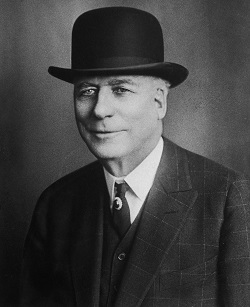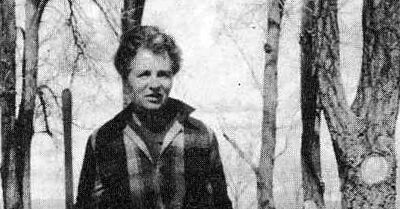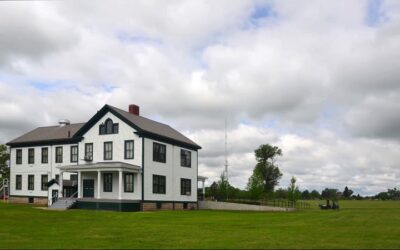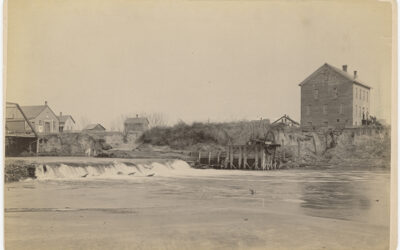A crime boss by the name of Tom Dennison dominated Omaha for the first three decades of the twentieth century—until he crossed paths with Attorney General C. A. Sorenson. The story of the demise of Dennison’s empire is told in the Fall 2015 issue of Nebraska History.

Tom Dennison
Known simply as “The Gang,” Dennison and his associates controlled Omaha’s electoral politics and extorted many of its businesses. Dennison himself had several illegal businesses including gambling, prostitution, and speakeasies. As early as 1900 he was called “the power behind the throne.” His control over police, judges, and juries protected him from the law.
The son of Danish immigrants, Christian Abraham (“C.A.”) Sorenson was born in a sod house and graduated from Loup City High School. He was expelled from Grand Island Baptist College for giving a speech that questioned religious rituals and humanity’s tendencies to accept the status quo. He then finished his law degree at the University of Nebraska-Lincoln. He became involved in Republican politics and in 1928 was elected as Nebraska’s attorney general with the support of the Women’s Christian Temperance Union and the Anti-Saloon League. After taking office, Sorenson wrote a public letter ordering Omaha Police Chief John Pszanowski to close all gambling establishments in Omaha. The letter was published in Omaha’s two daily papers, the World-Herald and Bee-News. Public letters were a favorite tactic of Sorensen. He said “pitiless publicity… is the most effective way of ridding a state or community of vice.” The letter also warned that if the gambling halls were not closed Sorensen would remove those responsible from office. The Gang was outraged, but Sorenson continued his assault. He next requested Ak-Sar-Ben to stop allowing pari-mutuel betting at its racetrack. Ak-Sar-Ben officials refused, claiming that pari-mutuel betting did not meet the legal definition of illegal gambling. Sorensen sued, won, and was upheld by the Nebraska Supreme Court. (Nebraskans voted to legalize pari-mutuel betting six years later.) Sorensen won re-election in 1930 but his enemies convinced the state legislature to reduce his budget. Nevertheless, he kept on with his clean-up campaign. Many informants provided information about illegal activities in Omaha. One of the most important was businessman Harry Lapidus. When Lapidus was shot to death in his car in 1931, Omaha police damaged the forensic evidence and botched the investigation. The murder was never solved, though it was widely believed to have been ordered by Dennison.
Unable to trust local law enforcement, in 1932 Sorensen convinced the U.S. Justice Department to pursue a federal case against Dennison and his associates for conspiracy to violate Prohibition. Although the case ended in a mistrial, it proved to be Dennison’s undoing.
“Tom Dennison and his co-defendants appeared at trial not as benevolent supporters of commerce and community, but rather as ruthless racketeers. Trial testimony about his political, vice, and bootlegging machines… turned the tide of popular opinion against The Gang.”
In 1933, for the first time in over thirty years Omaha held a Democratic primary without a certified Dennison slate. Dennison died the following year from injuries from a car crash. The public did not reward Sorensen for his work. He was voted out of office in 1932, a victim of that year’s Roosevelt Democratic landslide. Sorenson was unsuccessful in his pursuit of higher public office, but later was instrumental in the development of Nebraska’s system of public power and irrigation system. When he died in 1959 the Omaha World-Herald said he was “best known to many Omahans as a vigorous crusader against bootlegging, gambling and vice in the city.”




